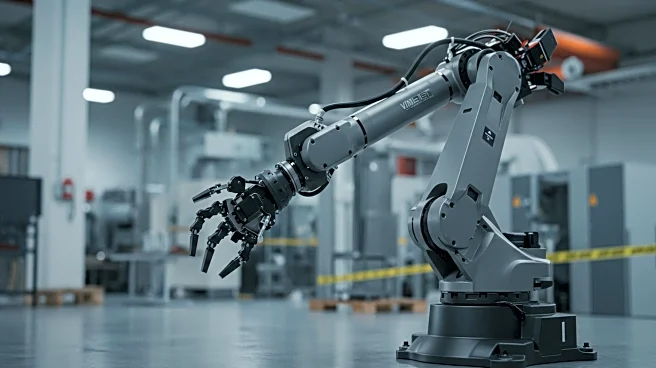What's Happening?
Labor unions, including the AFL-CIO, are collaborating with state legislators to advance regulations on artificial intelligence (AI) in workplaces. This initiative aims to protect workers from potential job displacement and infringement on employment rights due to AI technologies. The unions are advocating for laws that require human oversight in AI-driven processes, such as autonomous vehicles and workplace decision-making. The push for regulation follows the Senate's rejection of a federal moratorium that would have prevented states from regulating AI for the next decade. Union leaders emphasize the need to safeguard workers as AI becomes increasingly integrated into various industries.
Why It's Important?
The rapid deployment of AI technologies in workplaces poses significant challenges for labor rights and job security. Unions argue that without proper regulations, AI could lead to massive job displacement and undermine workers' rights. The initiative to regulate AI reflects broader concerns about the ethical and social implications of automation. By advocating for human oversight and transparency in AI processes, unions aim to ensure fair treatment and protect employment opportunities. The outcome of these efforts could shape the future of labor relations and influence how AI is integrated into the workforce.
What's Next?
The AFL-CIO task force plans to develop model legislation for state leaders, focusing on AI's impact on workers. This includes proposals to prevent employers from relying solely on AI for decisions like terminations and disciplinary actions. The unions will continue to work with state lawmakers to advance regulations that protect workers from the potential negative effects of AI. The push for AI regulation may face opposition from tech companies and employers, who argue that such measures could hinder innovation and economic growth. The ongoing debate will likely influence future policies and the role of AI in the workplace.










